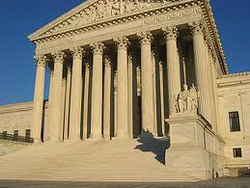Mise à jour : 2 juillet 2012 (Rédaction initiale : 22 juin 2012 )
Sur le vif

Mise à jour : 29 mai 2012 (Rédaction initiale : 17 mai 2012 )
Sur le vif

Mise à jour : 3 avril 2012 (Rédaction initiale : 26 mars 2012 )
Contributions

Mise à jour : 3 janvier 2012 (Rédaction initiale : 2 janvier 2012 )
Contributions

Mise à jour : 2 janvier 2012 (Rédaction initiale : 2 janvier 2012 )
Parutions : Neutrality in Systems of Economic Regulation

Translated Summaries
In The Journal of Regulation the summaries’ translation are done by the Editors and not by the authors
ENGLISH
The debate on Net Neutrality faces a major difficulty, namely that of its legal status: does there exist a “legal principle”—meaning a rule somewhere within the entire body of law—with mandatory force that could be used to counter infrastructure operators’ discriminatory practices?
FRENCH
Le débat sur la neutralité du Net fait face à une difficulté majeure, à savoir son statut juridique: existe-t-il un «principe juridique», qui exprime une règle dans l’ensemble du système juridique - avec une force obligatoire qui pourrait être utilisée pour contrer les pratiques discriminatoires des opérateurs d’ infrastructure ?
SPANISH
El debate sobre la Neutralidad de la Red se enfrenta a una gran dificultad, primordialmente en cuanto a su estatus legal: ¿realmente existe un “principio legal” – es decir, una regla que se encuentra dentro de la disciplina del derecho – con fuerza mandataria que podría ser usado para enfrentar a las prácticas discriminatorios que practican los operadores de infraestructura?
ITALIAN
Il dibattito sulla neutralità della rete si trova di fronte ad una difficoltà rilevante dal punto di vista del suo fondamento giuridico: esiste una norma giuridica obbligatoria – intesa come una norma legale – che possa essere utilizzata contro le pratiche discriminatorie degli operatori?
....................
Other translations forthcoming.
